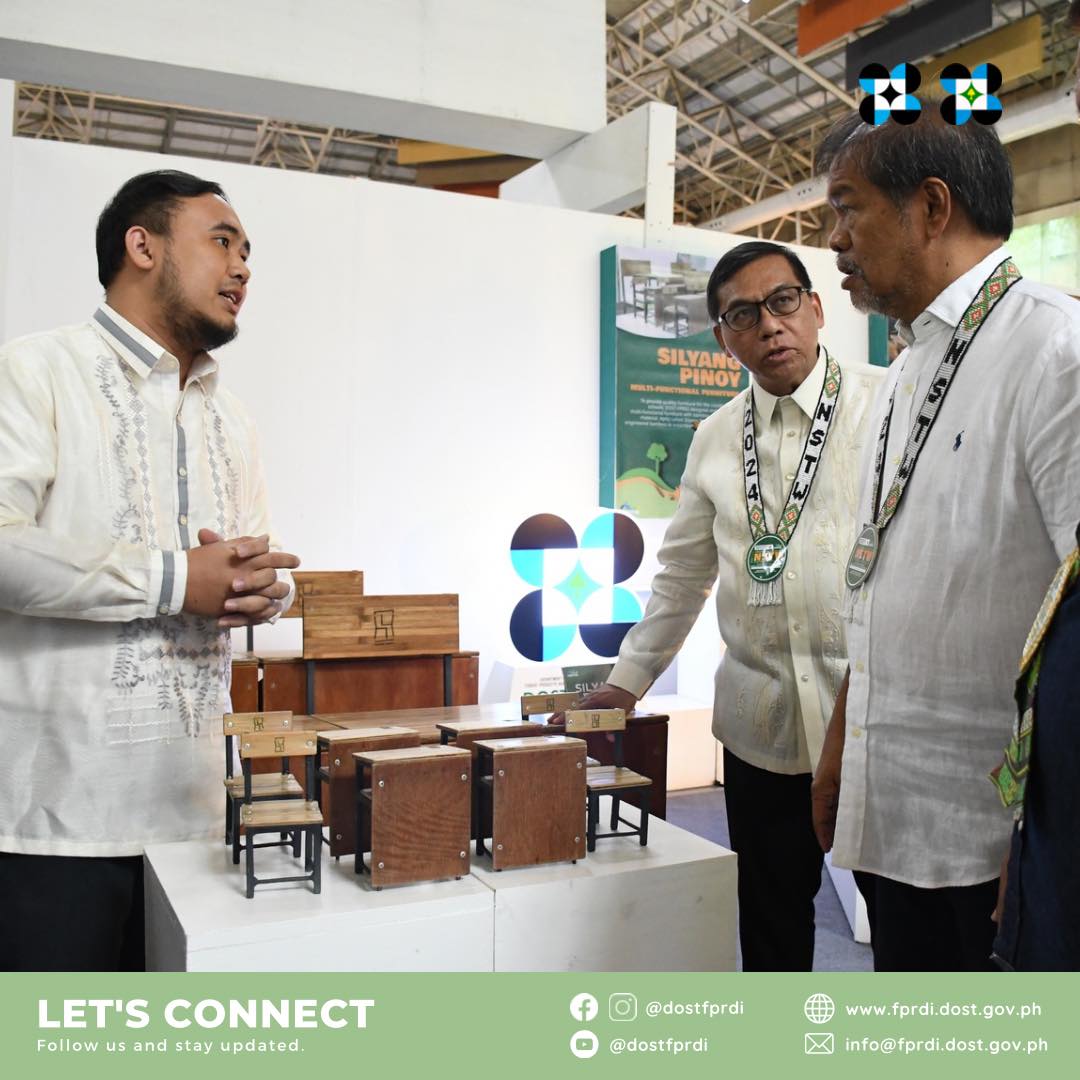DOST-FPRDI bags top awards in International Invention Fair
- Details
Green innovations from the DOST- Forest Products Research and Development Institute (DOST-FPRDI) were recognized in the recent Seoul International Invention Fair (SIIF) 2024 in Seoul, South Korea.
The Korea Invention Promotion Association conferred the Silver Award to DOST-FPRDI’s Multi-Functional School Furniture, also called Silyang Pinoy, because of its technical excellence, business potential, design, and explanation of the invention.
Silyang Pinoy is a chair-table combination that can easily be transformed into a bed. This innovation is especially useful during calamities when public schools are converted into evacuation centers. This sustainable furniture is mainly produced using engineered bamboo and other raw materials.
DOST-FPRDI features bamboo, other technologies in National S&T Week
- Details
The DOST- Forest Products Research and Development Institute (DOST-FPRDI) is showcasing some of its bamboo innovations at the National Science and Technology Week (NSTW) celebration from November 27 to December 1 at the Limketkai Center in Cagayan de Oro City.
Among the products featured are the multi-functional Silyang Pinoy, Bamboo Octagonal Jointing System, and the bamboo pellet.
“Bamboo is considered a flagship raw material at DOST-FPRDI. In fact, studies on bamboo technology stand at the forefront of the Institute’s efforts in championing the use of non-timber forest products (NTFPs),” explained DOST-FPRDI Director Rico J. Cabangon.
“As a raw material for durable structures, world-class furniture and handicrafts, and quality musical instruments, bamboo continues to draw the Institute’s attention and prods us to study it with more depth, breadth and intensity,” said Cabangon. “What used to be a ‘poor man’s timber’ is now touted as the ‘wonder grass’— all thanks to science, technology and innovation.”

DOST-FPRDI researcher Chris Rana explains the Silyang Pinoy to DOST Secretary Renato U. Solidum Jr. and Misamis Oriental Governor Peter M. Unabia
DOST-FPRDI Opens Flavors and Fragrances Facility for National Biotech Week
- Details
The DOST-Forest Products Research and Development Institute (DOST-FPRDI) opened its Flavors and Fragrances from the Forest Technology Program (F3TP) Laboratory to visitors last November 26 in connection with the National Biotechnology Week (NBW) celebration from 25-29 November 2024.
The visitors explored the innovative processes behind F3TP, and got a behind-the-scene look at the research and development on food and fragrance products. They were also treated to Bari Tea and wine tasting, and an immersive experience of eco-friendly scents created from forest-based materials.











